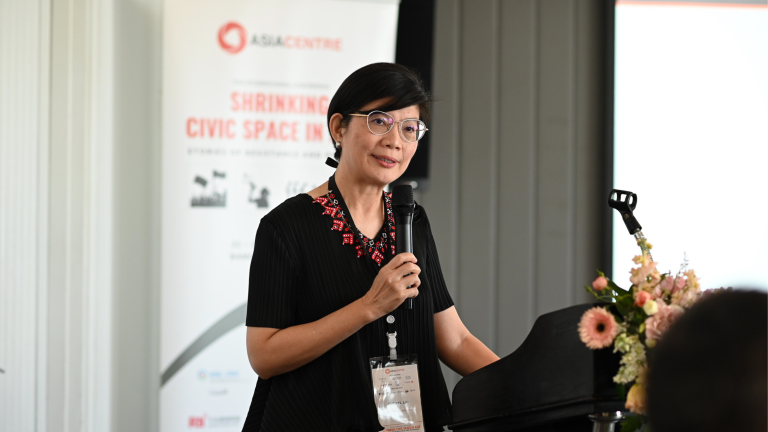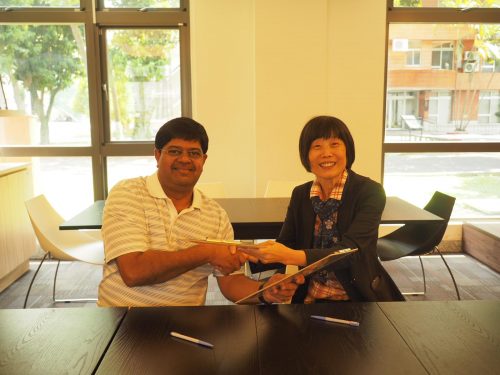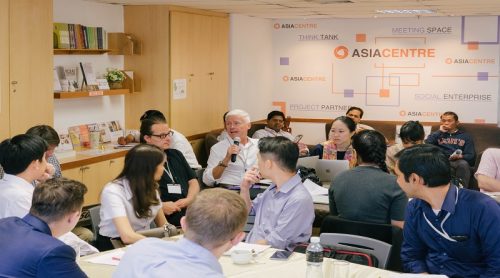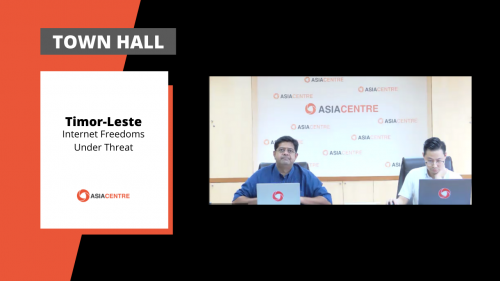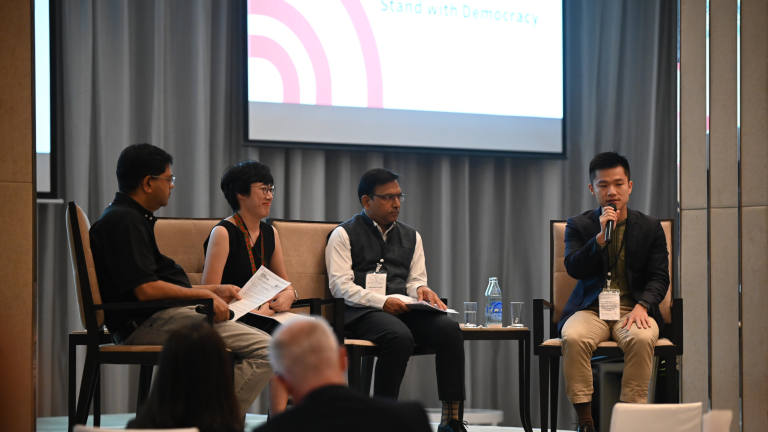
Radio Taiwan International (Rti) served as a new title partner for Asia Centre’s 9th Annual International Conference, “Shrinking Civic Space in Asia: Stories of Resistance and Pushback,” held in Bangkok, Thailand, from 21 to 23 August 2024. Through its participation in the conference, Rti underscored the importance of fostering global collaboration in a unified effort to defend democracy; they also stressed that indigenous voices must be heard and represented to protect and expand civic spaces across Asia.
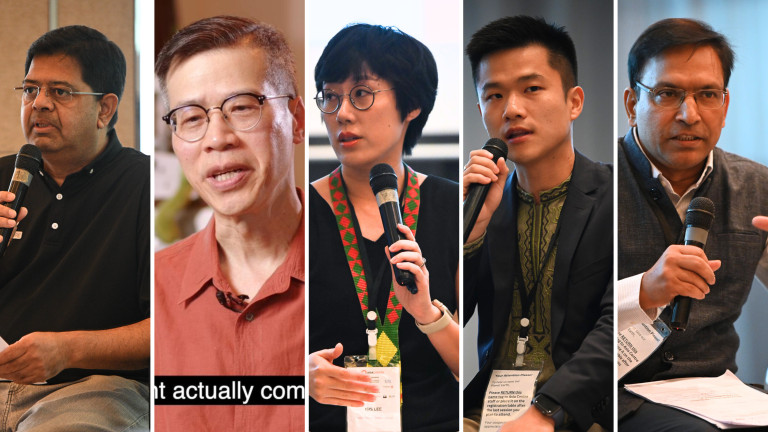
On 21 August 2024, the evening before the main conference days, Rti hosted the opening panel of the conference titled “Borders and Ethnicities – Stand with Democracy.” The panel was moderated by Dr James Gomez, Asia Centre’s Regional Director.
The first speaker was Kacey Wong, who participated in the panel via video to convey the urgent need for international collaboration to protect small countries from authoritarian expansion and foreign interference by their larger neighbours. This he said can be done through soft power, art and culture. He emphasised that collective action and solidarity are essential for countering the threats posed by authoritarian regimes. Kacey spoke of an “emergency community” underscoring the need for global collaboration and resilience in defending democracy and self-determination, especially in times of crisis and war.
From Rti, Isis Lee stressed the importance of international cooperation in countering authoritarian threats, with the Ukraine crisis serving as a warning for Taiwan regarding China. She emphasised the need for global solidarity as Taiwan faces potential conflict. She also highlighted the importance of inclusivity in civic spaces, particularly integrating immigrant communities and ensuring their access to information and services. She underscored the growing presence of international journalists in Taiwan and the need to collaborate globally, ensuring Taiwan’s narrative is told by its own people, not through China’s perspective.
Oleksandr Shryn, also from Rti, highlighted the need for small countries to fight for their self-determination and representation, as their stories are told through foreign narratives. He emphasised that both Ukraine and Taiwan face similar challenges, including the external distortion of their narratives – Ukraine’s story has long been told by Russians, while Taiwan’s has been shaped by China’s perspectives. He noted that self-representation and political nationalism resonate strongly with Taiwan’s current situation and their need to assert their own narrative.
Dr Niranjan Sahoo, Senior Fellow at the Observer Research Foundation in India, provided insights into the context of India, the world’s largest democracy. He emphasised the crucial role that news and social media play in countering dominant narratives and fostering democratic discourse. Dr Sahoo underscored the importance of revitalising civic space and reopening deliberative forums. Recent political dynamics in India have highlighted the suppression of various civil society groups, including farmers, students and trade unions. The revival of these forums is essential for re-engaging diverse voices in democratic processes.
During the Q&A session, questions were raised about the foreign media representation of Taiwan and Ukraine, and how narratives shaped by external sources impact these countries’ images and identities. Oleksandr responded by emphasising the need for Ukraine to remove the Russian language from its media and political landscape. He argued that sharing a common language with Russia, the foreign intruder, makes Ukraine more accessible and thus more vulnerable to external interference, which in turn justifies such interference.
Taiwan’s role as a beacon of democracy was also emphasised during the opening remarks on 22 August 2024. Cheryl Lai, Chairperson of Rti, highlighted that Taiwan, with its successful democratic transition, should advocate for democratic developments in neighbouring countries such as Myanmar, Hong Kong and Mongolia. She further stressed the importance of promoting inclusivity and diversity within civic spaces, particularly in the context of media and radio broadcasting.
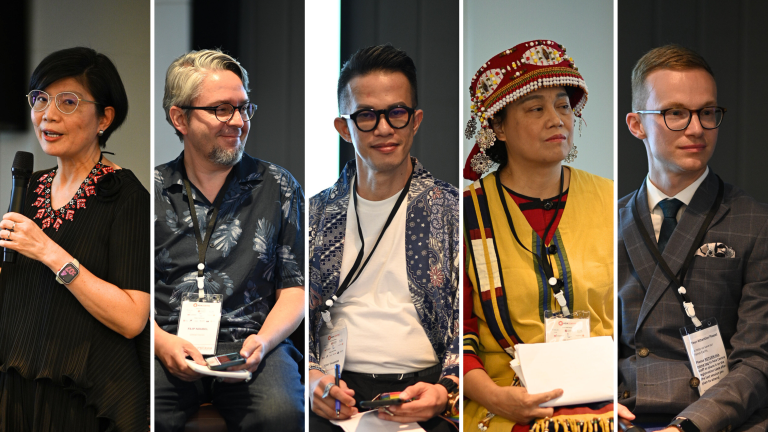
Rti hosted a second panel on 22 August titled “Beyond Borders and Ethnicities – Amplify the Voice and Diversity”. The panel was moderated by Cheryl Lai at Rti.
Filip Noubel, Managing Editor at Global Voices, Taiwan, highlighted the importance of supporting a diversity of narratives in newsrooms and decolonising them to expand civic space. He noted that embracing linguistic diversity is crucial for accurately conveying stories and contexts, especially in the media landscape. Each language offers unique cultural insights, and ensuring messages are communicated appropriately enhances the depth and inclusivity of news coverage.
Tony Thamsir, Broadcaster and Presenter at Radio Taiwan International, shared his personal journey towards embracing diversity. As an Indonesian Chinese, Tony faced discrimination and threats from Indonesians, which led him to distance himself from his Indonesian heritage and avoid working with Indonesians. However, after collaborating with Indonesian immigrants in Taiwan, he began to adopt a more open-minded perspective. Through this experience, Tony learned to appreciate and embrace diversity, overcoming his earlier biases and gaining a broader understanding of different cultures.
Mulihay Talus, Host at FM 96.3 Alian Radio, Taiwan, promoted diversity by sharing her personal story on the culture of the Sakizaya tribe in Taiwan. The Sakizaya have endured oppression, including land displacement and political exclusion. With Taiwan’s development into a democratic nation, there has been progress in recognising the Sakizaya and addressing past injustices.
Dr Martin Petlach, Assistant Professor at Mendel University, Czech Republic, stressed the importance of public trust between the government, media, and other relevant institutions in Southeast Asia. He argued that fostering social trust can significantly enhance engagement between various stakeholders, including indigenous communities, ultimately leading to the expansion of civic spaces.
During the Q&A session, panellists and participants discussed how the cultures, languages, and tribal traditions of indigenous peoples can be preserved and protected. Mulihay shared a story about the language teaching and learning structure of the Sakizaya tribe. The programme involves a three-hour session every Saturday for different age groups.
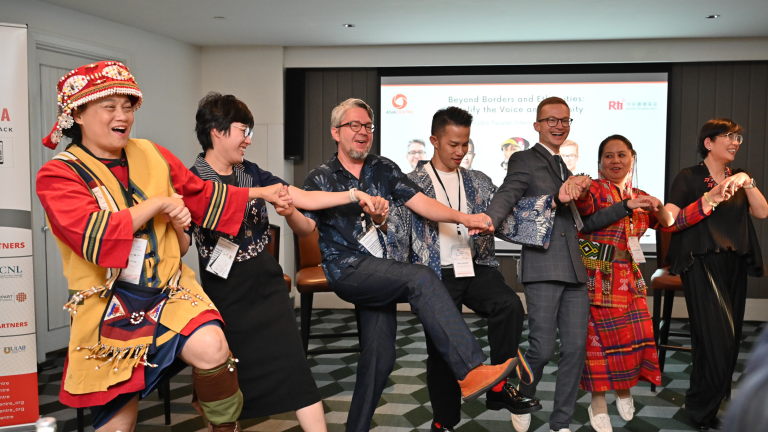
RTI’s participation in Asia Centre’s 9th conference nurtured and further strengthened the partnership with the Asia Centre. This partnership follows the signing of a Memorandum of Understanding (MoU) on 25 September 2023, which established a formal framework for cooperation between the two organisations. The MoU outlines their shared commitment to working together on various initiatives aimed at promoting democratic values, freedom of expression and cross-cultural communication across the Asia-Pacific region. RTI’s involvement in the conference highlights the active role it intends to play in these joint efforts, leveraging its extensive network and expertise to contribute to the Centre’s mission of advancing human rights and democratic governance in Asia.
The International Conference is Asia Centre’s annual event where it brings together its partners to share the outcomes of their programmes and network for future collaborations. Over the years, the conference has become a platform for a range of actors to meet and discuss key democracy and human rights issues.
To view the main conference article, articles on individual title partners, as well as TikTok videos and a photo album, read the main conference piece here.
If you would like to become a Conference partner for Asia Centre’s 10th International Conference “AI and Governance in Asia” or explore other collaboration opportunities, email us at contact@asiacentre.org. For more information, click here.
Asia Centre is a civil society research institute in Special Consultative Status with the United Nations Economic and Social Council. It serves as a knowledge partner and undertakes evidence-based research as well as provides capacity-building training for end beneficiaries. If you would like to collaborate with the Centre, please send an expression of interest to contact@asiacentre.org.
Follow Asia Centre’s social media channels for more information.

